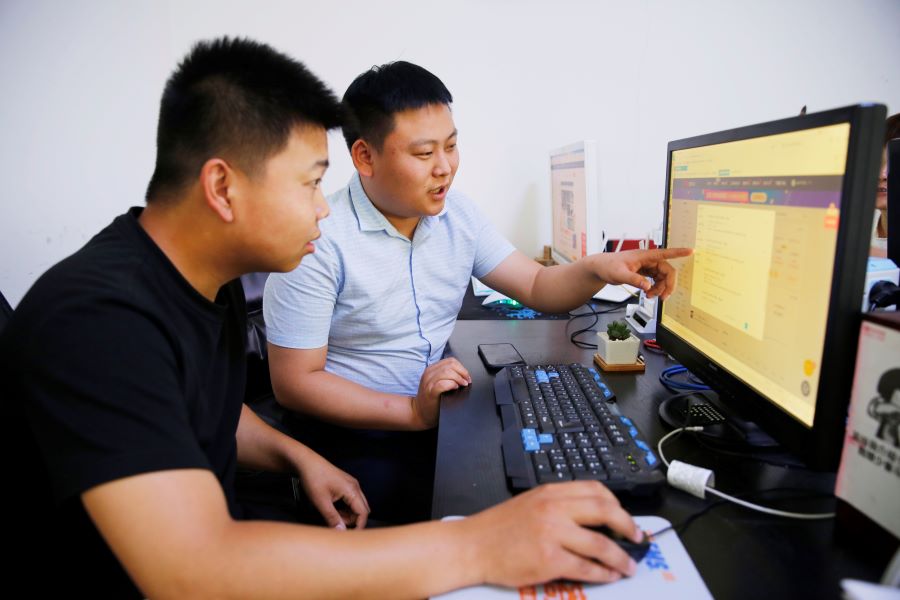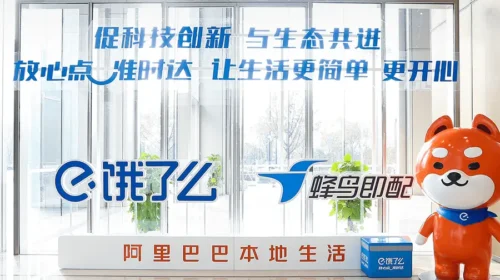Investors Turn Off iClick Despite Its Strong Potential, as Move to Hong Kong Remains Likely

E-commerce marketing services provider’s shares remain depressed, even as it forecasts strong growth for its enterprise solutions business over the next three years
Key takeaways:
• iClick said its enterprise solutions business more than doubled last year, and is expected to deliver more ‘strong growth’ for the next three years
• Company could make secondary listing, or delist from U.S. completely and relist elsewhere, most likely in Hong Kong, as it explores other ‘capital market opportunities’
By James Dyson
There’s an old stockbroker’s tip that says investors should look closely at a company’s fundamentals, make a firm investment decision, and then do completely the opposite. That advice would ring particularly true this past year for iClick Interactive Asia Group Ltd. (ICLK.US), a provider of e-commerce marketing services, whose solid performance has repelled ordinary investors but attracted more opportunistic private equity.
In a recent letter to shareholders, iClick’s CEO and Chairman Tang Jian said the company’s enterprise solutions business delivered triple-digit year-on-year revenue growth for 2021. “Looking ahead, we expect strong growth from enterprise solutions throughout 2022 and the following three years,” he added in the upbeat message dated Feb. 16.
The reality is that U.S.-listed iClick enjoyed improving revenues and good underlying market fundamentals last year, riding strong demand for its digital services from China’s vibrant e-commerce community. Despite all that, its shares tanked. Not only that, it appears to have lost the interest of two would-be suitors from Hong Kong, which were both attracted by the company’s undervalued shares and tried to take it private.
Both came courting but appear to have left empty-handed, rebuffed by Tang and the company’s other co-founder Sammy Hsieh, who control the bulk of iClick’s voting rights. Since then, the company’s shares have fallen well below both buyers’ offer prices. Yet the company has seen strong revenue growth, driven largely by the rapid growth of e-commerce in China.
At first glance it looks as though Hsieh and Tang may have missed a golden opportunity. After all, the first bid of $6.75 a share in September by PAG Pegasus Fund LP and Oasis Management Co. valued the company at $640 million. The second bid of $7.50 a month later by Infinity Equity Management Co. valued it at just over $700 million – both much higher than the company’s current market capitalization of just $220 million at its latest closing price of $2.42 on Monday.
A closer look at its shares over the past two to three years shows things were once quite different at the other extreme. It’s clear that the stock’s highs of around $17.50 just a year ago included a dollop of irrational exuberance. Painful as it may be for investors, the sharp fall since then has brought it back to where it was between late 2018 through early 2020. In late January, analysts were still relatively bullish on the stock, giving it an average target price of $9.85 and a “strong buy” rating. That suggests the shares may be oversold and Hsieh and Tang could be better served by waiting for a recovery in the price rather than accepting a lowball buyout offer.
Clearly, there’s no shortage of confidence about the company’s business from a fundamental standpoint, even though its growth comes off a low base. Revenue for its enterprise solutions business was $20.3 million in its latest reporting quarter for the three months through September last year, more than double the $8.8 million a year earlier. iClick’s marketing solutions revenue grew to $66.6 million in the period, up a more modest 11% year-on-year. The two figures combined translated to overall revenue growth of 26% to $86.9 million for the quarter.
iClick estimates that overall revenue for all of 2021 will total between $318 million and $338 million, representing about 30% growth year-on-year. It expects enterprise solutions revenue to be between $62 million and $68 million, or more than double the $28.9 million in 2020.
Pandemic-driven growth
Like elsewhere in the world, the pandemic accelerated widespread adoption of e-commerce in China, playing to iClick’s core expertise. Already the world’s largest e-commerce market, China was expected to see 17.2% growth last year as consumers shifted from offline to online for both convenience and safety reasons. That helped to drive up valuations of related businesses, including the likes of Alibaba (BABA.US; 9988.HK), JD.com (JD.US; 9618.HK) and iClick in the pandemic’s first year.
Alibaba shares reached a high of $310 in October 2020, while JD.com rose to $94 in February last year. Both have retreated a lot since then amid a more recent wave of bearish sentiment towards Chinese stocks, closing Monday at $105.19 and $71.63, respectively.
Looking forward, the value of e-commerce in China is expected to grow at a strong compounded annual growth rate (CAGR) of 11.6% between 2021 and 2025 to reach 21.4 trillion yuan ($3.3 trillion) in 2025, according to GlobalData, a data and analytics company. E-commerce sales in 2021 were valued at 13.8 trillion yuan.
While the prospects for China’s e-commerce market are very strong, it’s also important to remember that payment solutions like Alibaba’s Alipay and Tencent’s (0700.HK) WeChat Pay collectively account for 57.6% of total e-commerce value. WeChat Pay has access to WeChat’s massive 1.2 billion users, translating to massive potential for iClick’s WeChat-based data analytics.
In mid-February, iClick launched iNsights 2.0, an upgrade to its iSuite platform for intelligent data analytics. The tool allows global brands to gain what it describes as “unparalleled insights” into the WeChat ecosystem, enabling more effective data-driven marketing and smarter business decisions.
Given the broader e-commerce market fundamentals, new products and upgrades, and very favorable revenue growth projections, sitting tight and waiting for a share recovery could well prove to be an inspired move – or lack of move – by Hsieh and Tang in the face of last year’s two buyout offers that now appear to be obsolete.
But there’s always a “but.” In this case, that “but” comes in the form of the potential for geopolitical complications, which can also be viewed as a governance issue, for U.S.-listed Chinese companies.
In his latest letter to shareholders, Tang noted: “The management team will also pay close attention to developments in the U.S. capital market and actively look for various capital market opportunities to support our long-term development.”
In the current climate, that’s almost the same as saying that iClick may be considering a second listing – most likely in Hong Kong – or delisting from the U.S. altogether and relisting elsewhere, with Hong Kong again the most likely option. Such a move would be driven by simmering tensions between U.S. and Chinese regulators on company disclosures.
It’s an open secret that Beijing frowns upon Chinese companies listing in the U.S., so much so that Chinese companies pursuing overseas listings are tending to go elsewhere these days. Many of the nation’s top U.S.-listed internet companies have already undertaken dual listings in Hong Kong, including Alibaba, JD.com, search leader Baidu (BIDU.US; 9888.HK), and No. 2 gaming company NetEase (NTES.US; 9999.US).
Looking forward, for iClick there is significant potential for growth in both the company’s business and its valuation. That said, it does look almost inevitable that the company will either make a second listing in Hong Kong, or delist from the Nasdaq completely and most likely relist in Hong Kong at some point. These processes take time, but a two-year timeframe looks like a safe bet.
To subscribe to Bamboo Works free weekly newsletter, click here






